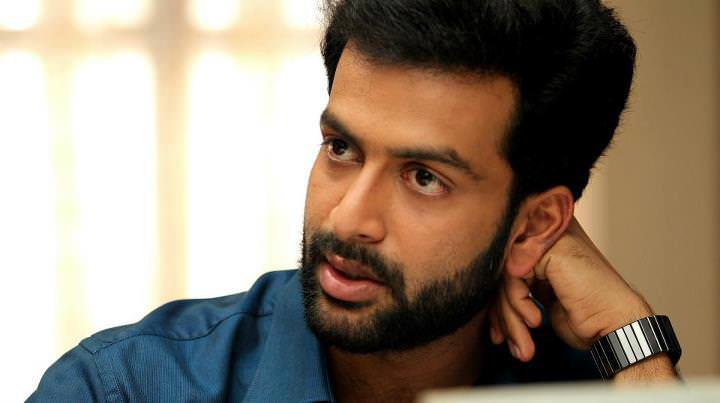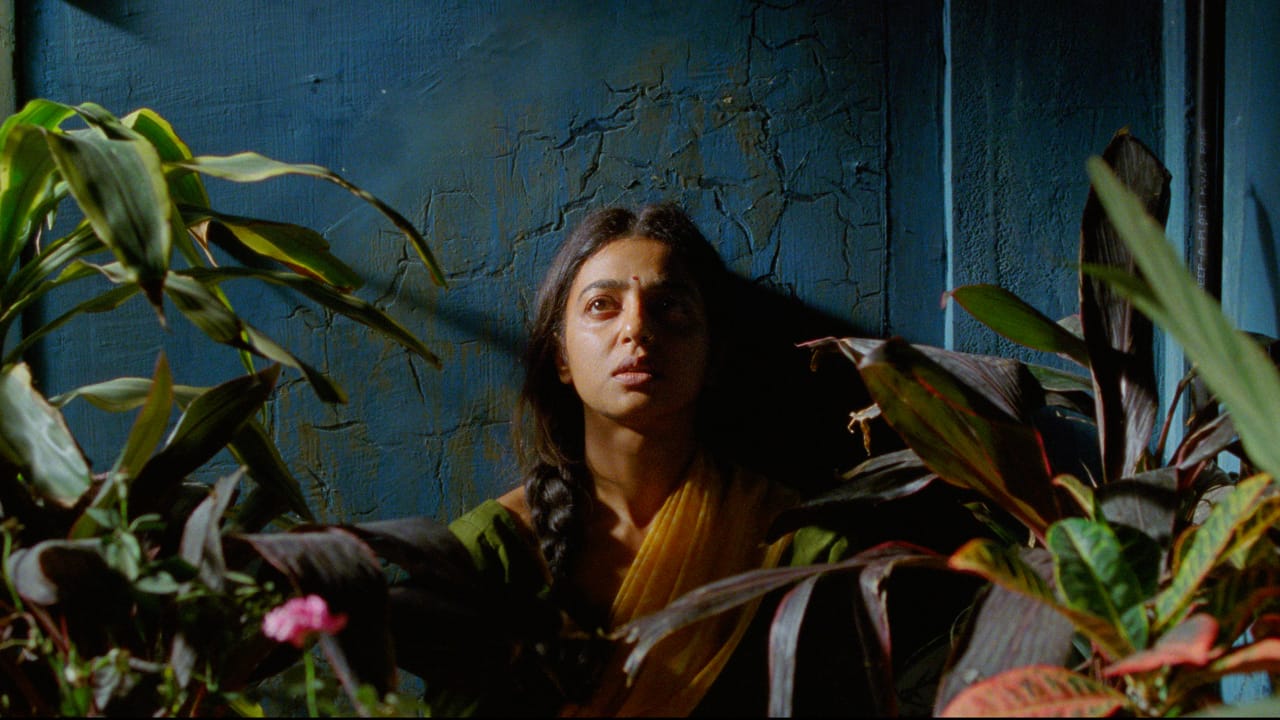Malayalam cinema has been glorifying misogyny and using it as a plot device for years. Since the time I could remember, women were subdued and subjugated in films and barely had a voice of their own. There were changes like; ‘Summer In Bethlehem’ (1998), ‘Kannezhuthi Pottum Thottu’ (1999) (transl: ‘Wear Kajal & Bindi’), and the celebrated feminist film of recent times, ‘How Old Are You’ (2014) but they were overshadowed by those films starring Malayalam superstars; Mammootty, Mohanlal, Suresh Gopi and Dileep.
Recently, a renowned Malayalam actor was kidnapped and molested in a moving car. As always, she went through all the atrocities faced by a survivor from being victimised by the media who revealed her name to shaming by the audience. The whole industry came forward to speak up for her. The accused men were caught by the police and government ensured changes in terms of women’s safety.
Also Read: The Underlying Sexism In The Media Reportage Of The Malayalam Actor’s Rape Case
But as women, our argument is for the right to mobility and autonomy which has been denied to us in the name of “safety”. A woman being raped, especially after 8 pm, is seen as a “normal” phenomenon. Thankfully, a lot of women are calling this out today. The highlight of this incident is that the actor, while fighting vehemently for justice, also chose to go back to work. This is a big statement for all in this society who shamelessly promoted rape culture. Actor Prithviraj took to Facebook to applaud her decision and while doing so, he made a statement:
Since misogyny has been glorified for a long time in Malayalam, his statement makes a great deal of difference. Actress Manju Warrier applauded him for the same.
Prithviraj’s films have had several misogynist undertones. In Chocolate (2006), he threatens to impregnate Roma’s character by raping her, saying “You will not be free for the next ten months“. In ‘Pavada’ 2016 (transl: ‘Skirt’), he plays an alcoholic named Joy who is married to. He marries a nurse named Sinimol who after finding out that he is an alcoholic, leaves him. But when she does, she hits him in the head because his behaviour frustrated her. At the end of the film, Joy confronts Sinimol with the same, saying that he will teach her a lesson to ensure that she doesn’t leave him again. Otherwise, he wouldn’t be a “man”. In the next scene, Sinimol is shown coming out of the gynaecology ward – she is pregnant. Apparently, Joy impregnated then he says “If you mess with men, this will happen“. One cannot definitively say whether it was consensual sex or rape (and in the eyes of the Indian state, there is no difference).
Prithviraj’s statement had me reflecting on the intense misogyny prevalent in Malayalam cinema – both in his older films as well as in general. Here the some of the ways in which misogyny has been intentionally or unintentionally promoted in Malayalam cinema.
Putting Women In Their “Place”
I recently watched a film named ‘Njangal Santhushtaraanu’ (1999) (transl: ‘We Are Happy‘), a film about a married couple who are having marital issues due to the wife’s “ego” and aversion towards Kerala culture. The wife’s character Geethu, played by Abhirami, is predictably vilified. She is hot-tempered, arrogant and mistreats her father-in-law and sisters-in-law. Her husband Sanjeevan, played by Jayaram, starts to mistreat her in return and calls it his method of “curing her mindset”. He molests her, humiliates her in public, beats her in front of the public and even calls out to her gender saying, “Women should be quiet and disciplined“. At the end of the film, her father hails him as a “God” just because of his decision to marry her in spite of knowing the truth of her whereabouts. This film was hailed as a family entertainer and was even a superhit back in its day.
This is a noticeable pattern in pre-2000s Malayalam cinema. Women who speak English, wear “modern” clothes, and talk back to men are often vilified and threatened with dire consequences. The only mode to redemption was if she switched to “traditional” clothes and apologised to her men.
Dialogues like “pennu pennite sthaanathirikkanam” (transl: “a woman should remain in her place“) and “pennayal adakkavum othukkavum venam” (transl: “women ought to be quiet and disciplined“) are commonly heard, and in most cases, are mentioned by heroes who themselves abuse and stalk women.
Using Femininity As An Insult
The superhit Malayalam film ‘The Truth‘ (1998) starring Mammootty features a scene in which he says “nee verum pennannu” (transl: “You are only a woman“) to an IPS officer played by Vani Viswanath. This dialogue, when it was heard in theatres, was applauded and cheered by young men who idolized Mammootty. These men started propagating this dialogue in real life. There were viral memes of this dialogue. At one point, when I opposed to the misogynist context under a Facebook post, I was attacked by Mammootty fans, one of whom said; “Mammootty is a great actor, just die if you can’t appreciate it“.
Similarly, in the 2016 film ‘Kasaba‘, Mammootty plays a police officer and he threatens a female officer saying “I can stop your menstrual cycle if I want to“. Young men, who continue to run fans clubs, replicate dialogues and imitate their heroes and are likely to identify with and propagate these dialogues. In many films, sarees, bangles and the word “woman” is used to insult men who are not capable. ‘Rakilipattu’ (2007) featured a police officer who threw bangles at men shouting “Wear it! You are not men“, as they failed to rescue a woman who was harassed and killed in broad daylight. Womanhood itself is insulting in these contexts.
The Romanticisation of Stalking and Molestation
Mohanlal did a film named ‘Kelkatthe Shabdham’ (transl: ‘The Unheard Voice’) where he plays Babu, a sex addict who stalks Jayanti (Ambika) who was his ex-lover, saying “I won’t leave you alone“. Another film by Mohanlal, ‘Vandanam’, too has a hero stalking a heroine as the central plot.
Years later, ‘CID Moosa’ (2003) starring Dileep and Bhavana was released. Dileep plays Sahadevan, an aspiring police officer who falls in love with Mina (Bhavana) and stalks her. He even molests her in public and due to his continued stalking, she loses her job. When she confronts him, he replies “I won’t leave you alone. I will love you, make you pregnant and destroy your youth. Finally, you beg for water from me. You wait and watch,” walking away in a heroic manner. This dialogue generated laughter and applause from men but as women, we are terrified by men who can’t take “no” for an answer. Movies that romanticize stalking have inspired men in real life like the guy inspired by Darr.
Also Read: Stalking, Hypermasculinity And Other Problematic Elements In Indian Cinema
The “Burden” Of Sisters And Daughters
In most Malayalam films, a girl is born and raised for one purpose alone: marriage. Despite having macho heroes who send villains flying with a single punch, filmmakers strive to remain “realistic” in this aspect. Having a sister or daughter at home is a burden and heroes are shown to be hardworking men who want to marry their sisters off. What do their sisters want in life? No one knows.
‘Oppam’ (2016) (transl: ‘Close‘) features a man betraying his best friend to a serial killer because the latter offered to give him a lot of money. He tries to justify the same with “I have 2 daughters“. In ‘Bhagyadevatha’ (2009) (transl: ‘Lucky Goddess‘) , Jayaram’s character Benny tortures and humiliates his wife Daisy (Kaniha) because she does not give him dowry. He learns his lesson when his sister needs to be married off, and needs dowry urgently. The best way in a which a lead character can earn sympathy from the audience is by having unmarried sisters or daughters.
Victimization of Rape Survivors
Sexual assault and violence against women has been used as a weapon by most villains to silence freethinking women characters. In Lion (2006) Kavya Madhavan’s character Shari is forced to appear as a “raped woman” by a goon because as per the social mindset being “raped” is worse than “raping”. Casually, she is termed “aa sadhanam” (that thing). The mother of the survivor then goes on to say that her life is ruined, she is stained and destroyed. Rape survivors are objectified worse than ever; being portrayed as nothing more than ‘vessels’ or ‘withered flowers’ instead of human beings.
’22 Female Kottayam’ features Tessa Abraham (Rima Kallingal) fighting back at her rapists. However, she keeps repeating, “I am stained“, “I am impure” and “My life is ruined“. A similar dialogue was told in ‘Kaabil’ (2017), by Yami Gautam’s character who was raped by local goons. She says that she will never be the same person. Unlike Tessa from 22 female Kottayam, Yami’s character commits suicide and this depiction of rape victims angered many.
Malayalam film ‘Puthiya Niyamam‘ (2016) (transl: ‘New Law‘) featuring Nayanthara, depicts her as a rape survivor who fights for justice. The movie indirectly campaigns for the death penalty for rapists, when Nayanthara’s character Vasuki says: “Men who violate women should not be spared. The new law that punishes such men with death should come“. The movie’s supposedly feminist heroine ends up propagating an anti-feminist message including Vasuki’s own dilemma and her declaration of herself as an “impure vessel”. As long as this cringe-worthy objectification and victimization happen, rape survivors do not get justice.
Now that Prithviraj has made a statement towards the creation of healthier content in films, I hope that Mammootty and Mohanlal who have delivered their share of explicitly misogynistic films will do the same. Heroes are worshiped to an extent that there are fans associations, statues and even temples in their names. Since the audience looks up to these actors, it is essential on their part to deliver healthy content. Even today, the Malayalam industry lacks films with strong female leads, with women being reduced to ornaments or plot-devices. The masculine industry will take a while for any meaningful change to occur, and to stop applauding and defending hyper-masculinity in films. 50% of the audience ought not to be ignored in the creation of art and film.
About the author(s)
Writer.







I realized why most of the contents in the above article are misinterpreted and manipulated only after reading the URL. The dialogue in kasaba is completely different and writer forgot to mention the misandrist dialogue in both the scene to which the actors have giving apt Misogynist reply. I guess writer intentionally neglected those. Lol, Its indeed a feminist page and what more should I expect.
There are no rape references in Chocolate. He clearly said, ‘If I mess around, you will not be free for the next 10 months’. That’s the literal translation and it has nothing to do with rape.
Rape is a type of sexual assault usually involving sexual intercourse or other forms of sexual penetration carried out against a person without that person’s consent
?